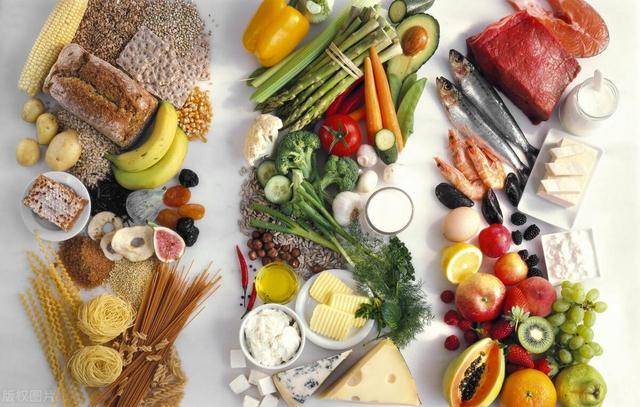#Healthy Red Cross#
High blood lipids, what to do with life? 5 fruits and 5 vegetables to help!
Hey, dear readers and friends, let’s talk about a down-to-earth topic today – high blood lipids; Let me tell you a story first, Xiaozhang, an ordinary office worker, under high work pressure, often works overtime, and has irregular daily routines; Recently, he found that his physical strength is not as good as before, he gets out of breath climbing stairs, went to the hospital for a check-up, and found high blood lipids; This made him anxious, after all, high blood lipids are not a trivial matter, it is the “invisible killer” of cardiovascular diseases;
Xiaozhang’s story may resonate with many people; High blood lipids not only affect physical health but may also impact work performance, and even harmony in family and relationships; But don’t worry, today we will discuss how to assist in lowering blood lipids through dietary adjustments in daily life;
5 types of fruits, natural lipid regulators
First, let’s talk about fruits; Fruits are rich in vitamins, minerals, and dietary fiber, which are all good helpers in regulating blood lipids;
Apple: The pectin in apples can lower the low-density lipoprotein cholesterol in the blood, commonly known as “bad cholesterol”; Grape: Resveratrol in grapes helps increase high-density lipoprotein cholesterol, known as “good cholesterol”; Hawthorn: Organic acids and flavonoids in hawthorn are remarkably effective in lowering blood lipids; Banana: Potassium in bananas helps lower blood pressure, indirectly improving blood lipid levels; Blueberry: Anthocyanins and vitamin C in blueberries are beneficial for cardiovascular health;
5 types of vegetables, good companions for a healthy life
After discussing fruits, let’s take a look at vegetables; Dietary fiber and phytochemicals in vegetables also play an essential role in lowering blood lipids;
Garlic: The sulfides in garlic can reduce cholesterol and also have anti-inflammatory effects; Onion: Onions contain sulfides and prostaglandin A, which can reduce blood viscosity and prevent blood clots; Carrot: Beta-carotene in carrots has a positive impact on cardiovascular health; Eggplant: Vitamin P in eggplant can enhance blood vessel elasticity and lower blood lipids; Tomato: Lycopene in tomatoes can help reduce bad cholesterol in the blood;
Dietary adjustments are more than just eating
Of course, besides eating the right foods, some lifestyle habits need adjusting; for example:
Regular diet: Avoid overeating and try to maintain regular eating habits; Moderate exercise: Engage in at least 150 minutes of moderate-intensity exercise per week, such as brisk walking, swimming, or cycling; Weight control: Obesity is a common cause of high blood lipids, and weight control is crucial for lipid regulation; Quit smoking and limit alcohol consumption: Tobacco and alcohol have adverse effects on blood lipids, quitting smoking and limiting alcohol intake are effective ways to lower blood lipids;
Doctor’s advice
Finally, as a doctor, I would like to give you a few suggestions:
Regular check-ups: Regularly check your blood lipid levels to detect problems in time; Follow medical advice: If diagnosed with high blood lipids, follow the doctor’s advice, take medication, and adjust your diet; Maintain a positive attitude: Keeping an optimistic mindset is equally important for health;
High blood lipids are not frightening; what’s frightening is ignoring them; through proper diet and healthy lifestyle, we can control blood lipids well and enjoy a healthy life; I hope today’s information is helpful to you, if you have any questions, feel free to leave a comment in the comment section, I will do my best to answer them; Remember, start living healthy from today!
These are the insights for today; if you enjoyed this article, don’t forget to like, share, and follow! See you in the next issue!
So dear readers, do you have any tips for maintaining healthy blood lipids? Do you prefer a variety of fruits or lean more towards vegetable intake? Or do you have unique insights in dietary regulation? Feel free to share your experiences in the comments section, let’s discuss and learn together; Each of your shares could be a helping hand for someone else’s health!
Additionally, if you think this article is helpful to you or your family and friends,
please don’t hesitate to like and share, let more people learn about these dietary facts that contribute to health; Every action you take spreads and promotes health;
Let’s work together to create a healthier living environment for our families and ourselves!


